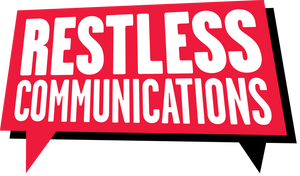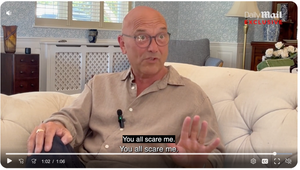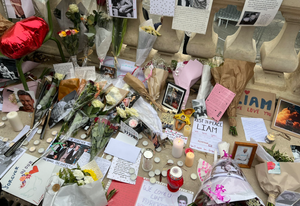When big organisations write critical reports, they tend to share them with those featured before publication. It's just good manners. But they don't expect those featured to go out on the PR offensive before the report is published.
Of course, when it comes to reputation management and crisis communications, best practice is often to try and control the narrative. To get your defence out first.
The BBC/Banijay report about UK TV Chef Greg Wallace is out today.
Within it, 45 (of 83) allegations against Greg Wallace are upheld, including one of unwelcome physical contact and three of being in a state of undress.
He published his pre-buttal (sorry - truly horrible word) five days ago.
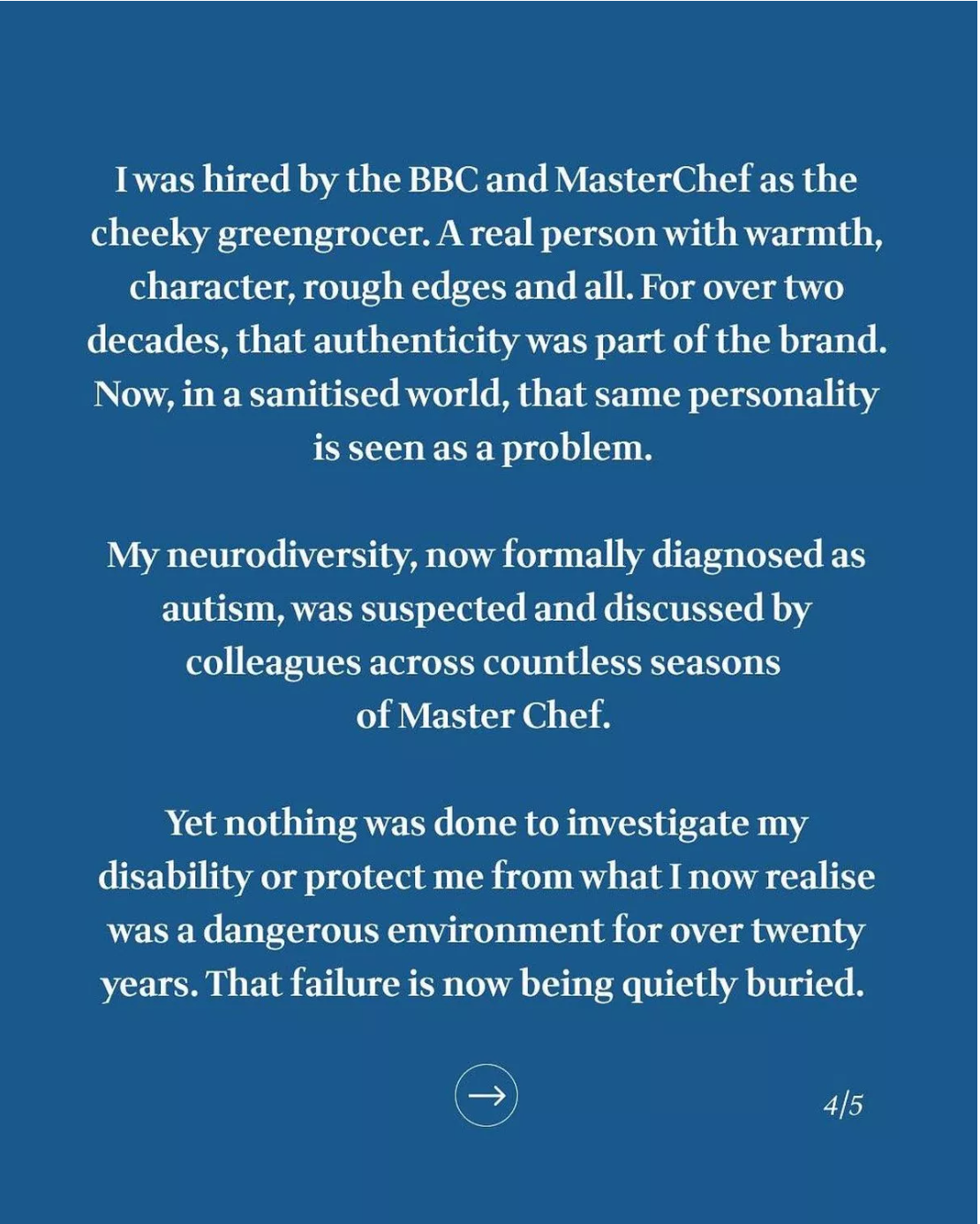
Within it, he:
- Criticised BBC News, "This feels to me like BBC News is chasing slanderous clickbait rather than delivering impartial journalism"
- Claimed that his 'authenticity' was at first part of his appeal as a "cheeky greengrocer", but now "that same personality is seen as a problem".
- Shared his autism diagnosis, but claims that "nothing was done other than investigate my disability or protect me from what I now realise was a dangerous environment for over twenty years."
On its own, his statement looked like a mix of good advice, with a large dollop of vitriol. But it's always the vitriol that's going to generate media interest.
And it did.
Did he get advice? I suspect so.
Did he follow all of it? No.
But that was just the start.
A global discussion about Greg Wallace's pants
No sooner was his pre-buttal statement published than 'sources close to' Greg Wallace, or 'friends of' Greg Wallace (newspaper-speak for Greg Wallace or his PR), told the Times that he had an 'inability to wear underwear because of his autistic hypersensitivity to labels and tight clothing'.
Which also gave him an 'oddity of filters and boundaries.'
Now, there may well be a good legal reason for referring to his autism in his defence (indeed, he's threatening to sue his employers - so watch this space), not that neurodiversity-in-the-workplace experts Neurouniverse are convinced.
But from a pure crisis comms perspective, from the start, he's gone about things all wrong.
No one else blames a lack of pants on being neurodivergent. So why does he?
Middle-class women of a certain age
When the allegations against him were first aired in December 2024, he complained in an Instagram video: "I can see the complaints coming from a handful of middle-class women of a certain age."
He later apologised for that post. (Downing Street described his words as 'inappropriate and misogynistic'.)
The words in his apology are important:
"I want to apologise for any offence that I caused with my post yesterday and any upset I may have caused to a lot of people"
SO...he can apologise. He has apologised in the past. Even though it was only for the offence he may have caused, rather than the more accurate offence he has caused.
Fast forward to his pre-buttal last week, and again, there was an apology buried in there:
"I recognise that some of my humour and language, at times was inappropriate. For that I apologise without reservation."
But none of the media focus has been on the apology.
Pretty much all of it has been about whether or not he wears pants.
He attributes his lack of pants to his autism. But the autism community wants to distance itself from his comments as much as they can. And they're not alone. And that keeps the story going for even longer.
The three most popular comments on his own Instagram post are critical of his approach.
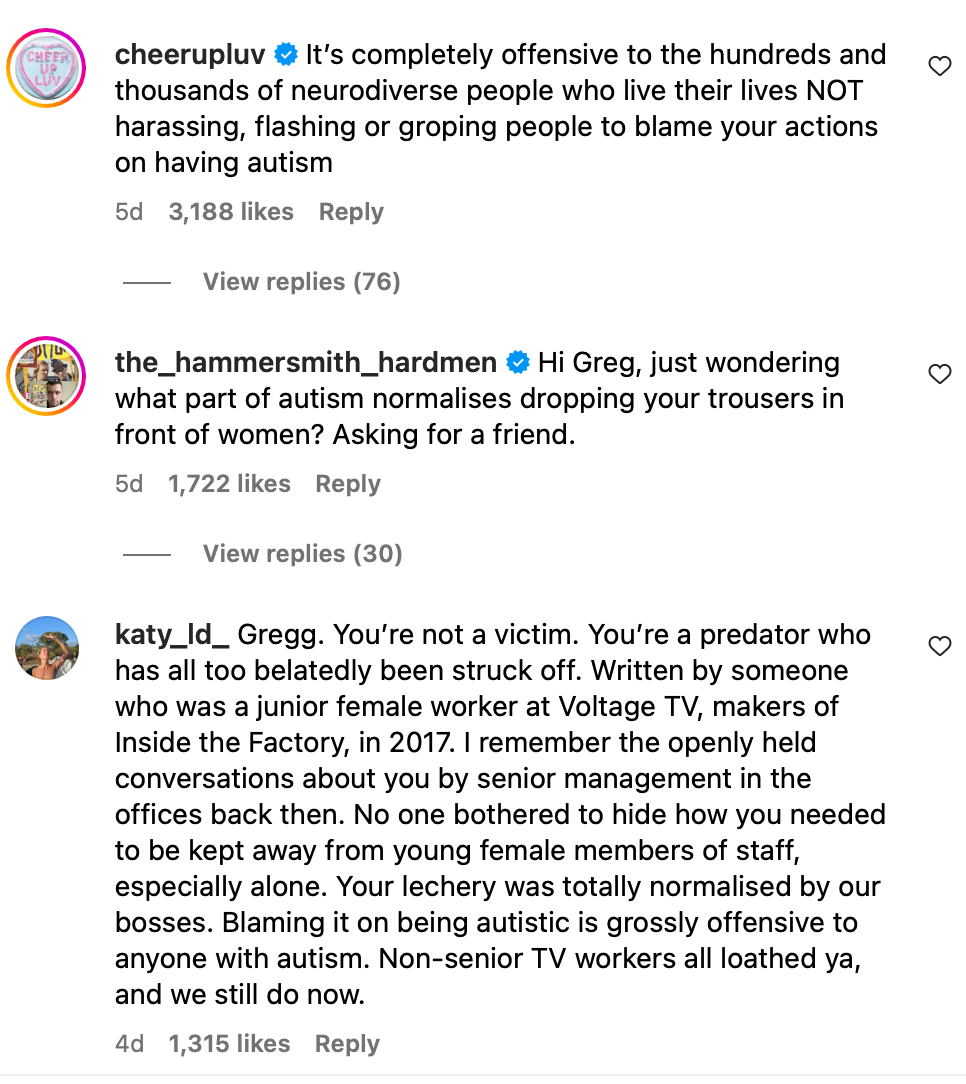
A spokesperson for the National Autistic Society was a bit more measured, telling the Guardian: “Every autistic person is different, just like every non-autistic person is different, so it is important not to generalise or make judgments based on the actions, words or behaviour of any one individual.”
So, what should Greg Wallace have done? Recognise, apologise, take action, go quiet
A few people have asked what advice I would have given him over the last few days. And for all I know, he was given this exact advice. So, here goes.
[EDIT: My advice on Greg Walace's crisis comms strategy, and that of ITV regarding his colleague John Torode were included in a couple of news stories in the I newspaper a couple of times this week.
1) Gregg Wallace is a spectacular lesson in how not to handle a crisis
2) Why ITV will 'brazen it out' over John Torode show despite MasterChef sacking]
This advice (indeed, all crisis comms advice) should be firmly rooted in one principle: Where people have suffered (and here they have), their feelings should always be front and centre. You should do everything you now can to minimise their suffering.
So, strictly hypothetically of course:
1 Don't try to 'get ahead' of the story. Instead, prepare for it. Don't forget, you're already deep in a PR hole because of the 'women of a certain age' comment. Stop digging. For all you know, it might be published the same day the BBC also faces criticism for its Gaza coverage and the day before its annual report. And the political focus might be elsewhere. Oh, wait...
2 In our crisis comms training, we make it clear that any media crisis relies on a hero and a villain. You are never going to be the hero. So do everything you can to avoid being the villain.
3 If you insist on issuing a 'pre-buttal' (and you're the client, it's your reputation so all I can offer is advice), then unless you want to fan the flames, keep it short and sweet.
4 Make your apology front and centre. Whenever you say it, lead with it. And make it credible. You are what you do, not just what you say. There are victims here. You need to acknowledge what happened and how they might feel.
5 If the lawyers insist you refer to your autism (which seems like their strategy for the next phase), then OK, refer to it. But whatever you do, don't focus on it.
6 Whatever you do, don't brief in detail about your autism. Even if you think you're saying something that explains your action, not everyone will agree. Everyone knows someone with autism. They all remain fully clothed in the workplace. (See 3 above. Keep it short and sweet. Don't brief).
7 Show how you're sorry (don't just say it). Show how you'll do things differently. Tell the world you're going to take some time out to reflect. Then do a one-to-one interview with a sympathetic title to show how you've changed. And then ease back into things, if you can.
Of course, Gregg Wallace did try to do some of these things in his Daily Mail interview back in April 2025. He spoke of feeling suicidal, and complained that women he thought he 'had a decent relationship with' were attacking him.
But it clearly didn't work.
A couple of other people have also asked if I would work with him.
And my answer is 'no'. I'm lucky enough to be able to choose my clients.
One of them is the European Institute of Gender Equality.
We're in the business of using communications to try and prevent abuses of (gendered) power in the workplace.
Indeed, it's a campaign we're working on right at the moment.
Sorry Gregg, you're on your own on this one.
But you probably knew that already.
UPDATE: 1630 14 July
Various UK media report his statement to the Press Association after the Banijay Report was published. (The summary is well written. Their actions are clear.)
The The Times uses this headline: "I never set out to harm or humiliate", and The BBC goes with"Wallace 'sorry' after 45 claims against him upheld" going on to report, "Gregg Wallace says he is "deeply sorry for any distress" he caused, after 45 complaints about his behaviour on Masterchef were upheld."
So, there is an apology there. But is it enough? I'm still not convinced...
"For eight months, my family and I have lived under a cloud. Trial by media, fuelled by rumour and clickbait."
“None of the serious allegations against me were upheld. I challenged the remaining issue of unwanted touching but have had to accept a difference in perception, and I am deeply sorry for any distress caused. It was never intended.”
“I’m relieved that the Banijay report fully recognises that my behaviour changed profoundly in 2018. Some of my humour and language missed the mark. I never set out to harm or humiliate. I always tried to bring warmth and support to MasterChef, on screen and off."
“After nearly 20 years on the show, I now see that certain patterns, shaped by traits I’ve only recently begun to understand, may have been misread. I also accept that more could have been done, by others and by myself, to address concerns earlier.”
“A late autism diagnosis has helped me understand how I communicate and how I’m perceived. I’m still learning.”
He praised the show’s production company, Banijay, saying they had “given me great support, and I thank them. But in the end, the BBC left me exposed to trial by media and the damage it leaves in its wake.”
“To those who’ve shown kindness, thank you. It mattered."
“This has been brutal. For a working-class man with a direct manner, modern broadcasting has become a dangerous place. I was the headline this time. But I won’t be the last.”
“There will be more casualties if the BBC continues down this path, where protecting its legacy matters more than protecting people. For my part, with full legal support, I will consider my next move.”
